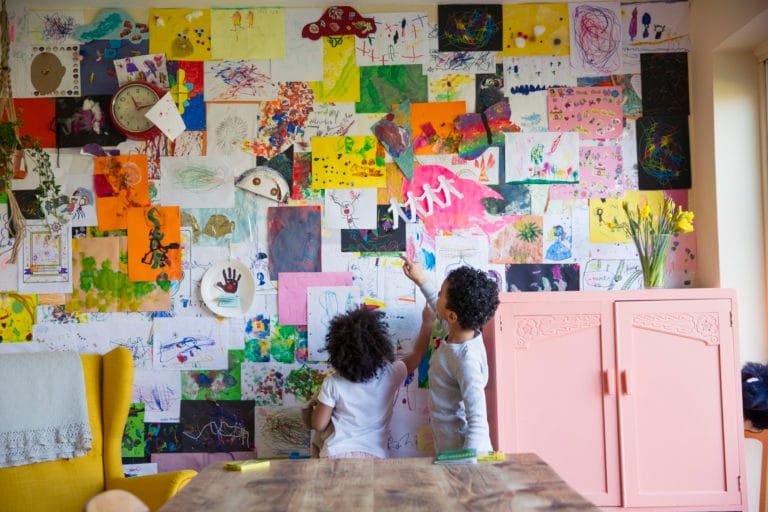Science Lessons Near Me
sibling discount

School Skills
99%
by Gymboree Play & Music, Columbus OH
Columbus, OH
Encourage curiosity and build self-confidence in your preschooler through art, science exploration, play and more. Teachers guide students to explore key social and emotional skills and engage in STEAM based activities that assist with school readiness.
In-person
Ages 3-6 years

Python for beginners 2025
71%
by Siliconvalley4U
A. Course Overview This Python Programming course is a program designed to introduce students to the fundamentals of coding. No prior programming experience is necessary—students only need basic computer usage skills. B. Teaching Strategies The course materials cater to diverse learning styles, combining written text with engaging multimedia content. Delivered entirely online, the course offers flexibility for students to learn seamlessly from home or in the classroom. Key chapters focus on Python programming and computer science principles, while supplemental lessons cover topics such as computing ethics, career exploration, and societal impacts of technology. Teachers may tailor lessons to meet state standards or student interests. The course culminates in an optional Creative Project, which can be completed individually or in small groups, fostering collaboration and hands-on application of programming skills. C. Course Planner The curriculum is designed for daily lessons lasting 45-60 minutes. Each chapter includes: • One lesson per day (including quizzes). • One day per chapter lab activity. • One day per chapter test. Larger labs may require additional time. D. Chapters and Objectives Chapter 1: Fundamentals of Python • Introduction to Python • Running Python Programs • Writing Python Code Chapter 2: Working with Data • Data Types and Variables • Numeric and String Variables Chapter 3: Input and Output • Printing Parameters • User Input • String Formatting Chapter 4: Making Decisions • Logical Expressions and Operators • The “if” Statement • Complex Expressions Chapter 5: Finding and Fixing Problems • Types of Errors • Troubleshooting Tools • Using the Python Debugger Chapter 6: Lists and Loops • Lists, Tuples, and Functions • “For” and “While” Loops Chapter 7: Numeric and Data • Dates, Times, and Math Libraries • Random Numbers Chapter 8: Working with Strings • String Functions • Input Validation with “try/except” Chapter 9: Functions • Writing and Calling Functions • Local and Global Scope Chapter 10: Python Classes • Object-Oriented Programming Basics Chapter 11: Class Instances • Creating and Managing Objects Chapter 12: Food Fight Project • Developing a Python-based Game Chapter 13: Creative Project • Design, Coding, Testing, and Team Collaboration Supplemental Lessons • Python on Your Computer: Installing Python, Using IDEs, and Managing Projects. • Computers and Society: Global Computing, Digital Identity, and Artificial Intelligence.
Online
Ages 8-18 years

AP Computer Science Test Workshop 2025
71%
by Siliconvalley4U
Is the student struggling with computer science subject at school? Does the student aim to get a score of 5 in this test? Or simply, the student would love to have a better understanding of the subject? We are here to help you with your journey. OUR GOAL IS TO: - Master 100% of the course content through reviewing and practicing the test, and running programs. - Build solid Java programming skills, and train computational thinking - Be able to design and implement programming algorithms independently - Master how to learn and prepare the AP CS exam independently - Get ideas on building CS programming projects COURSE OUTLINE: I. OBJECT-ORIENTED PROGRAM DESIGN - The overall goal of designing a piece of software (a computer program) is to correctly solve the given problem. A. Program and Class Design 1. Problem analysis 2. Data abstraction and encapsulation 3. Class specifications, interface specifications, relationships (“is-a,” “has-a”), and extension using inheritance 4. Code reuse 5. Data representation and algorithms 6. Functional decomposition II. PROGRAM IMPLEMENTATION - Part of the problem-solving process is the statement of solutions in a precise form that invites review and analysis. A. Implementation techniques 1. Top-down 2. Bottom-up 3. Object-oriented 4. Encapsulation and information hiding 5. Procedural abstraction B. Programming constructs 1.Primitive types vs. reference types 2. Declaration: Constants, Variables, Methods and Parameters, Classes, and Interfaces 3.Text output using System.out.print and System.out.println 4. Control: Method call, Sequential execution, Conditional execution, Iteration, and Recursion 5. Expression evaluation: Numeric expressions, String expressions, and Boolean expressions, short-circuit evaluation, De Morgan’s law C. Java library classes and interfaces included in the AP Java Subset III. PROGRAM ANALYSIS - The analysis of programs includes examining and testing programs to determine whether they correctly meet their specifications. A. Testing 1. Development of appropriate test cases, including boundary cases 2. Unit testing 3. Integration testing B. Debugging 1. Error categories: compile-time, run-time, logic 2. Error identification and correction 3. Techniques such as using a debugger, adding extra output statements, or hand-tracking code. C. Runtime exceptions D. Program correctness 1. Pre- and post-conditions 2. Assertions E. Algorithm Analysis 1. Statement execution counts 2. Informal running time comparison F. Numerical representations of integers 1. Representations of non-negative integers in different bases 2. Implications of finite integer bounds IV. STANDARD DATA STRUCTURES - Data structures are used to represent information within a program: Primitive data types (int, boolean, double), Strings, Classes, Lists, and Arrays (1-dimensional and 2-dimensional) V. STANDARD OPERATIONS AND ALGORITHMS - Standard algorithms serve as examples of good solutions to standard problems. Many are intertwined with standard data structures. A. Operations on data structures 1. Traversals 2. Insertions 3. Deletions B.Searching 1. Sequential 2. Binary C.Sorting 1. Selection 2. Insertion 3. Mergesort VI. COMPUTING IN CONTEXT - An awareness of the ethical and social implications of computing systems is necessary for the study of computer science. System reliability Privacy Legal issues and intellectual property Social and ethical ramifications of computer use "SiliconValley4u is a great choice for AP Comp Sci Tutoring. They are subject matter experts and extremely professional. When my daughter was struggling with AP Comp Sci they quickly made themselves available for consultation and got her back on track with excellent tutoring. She ended up scoring very well on her AP test. Akhil Y is a very patient tutor for AP Comp Sci Principles and AP Comp Sci A." - Alex M (Yelp review)
Online
Ages 12-18 years

Coding For Little Curious Minds
100%
by Young Gates
Coding is a part of the computer science curriculum that is currently lacking in schools. I believe that all kids can code and it allows them to become creators and inventors, which is what we need our children to do as they get older. Students will learn the very basics of what coding is. 1. Compare coding and giving a character a command. 2. Watch a video that explains how coding relates to us, coding, algorithms and debugging. 3. Work together to get the character, home by providing a code. 4. Work on code.org to begin coding tasks together as a group. Coding is a great way to build social and emotional skills that include, perseverance, resilience and problem solving as well as creativity and innovation. Students will learn vocabulary words, algorithm, program and debugging. They will begin to understand how to give a specific set of directions, and when they directions don't work, they will be able to find the mistake and fix it. They will also learn why coding is important.
Online
Ages 4-7 years

Coding For Little Curious Minds
100%
by Young Gates
Coding is a part of the computer science curriculum that is currently lacking in schools. I believe that all kids can code and it allows them to become creators and inventors, which is what we need our children to do as they get older. Students will learn the very basics of what coding is. 1. Compare coding and giving a character a command. 2. Watch a video that explains how coding relates to us, coding, algorithms and debugging. 3. Work together to get the character, home by providing a code. 4. Work on code.org to begin coding tasks together as a group. Coding is a great way to build social and emotional skills that include, perseverance, resilience and problem solving as well as creativity and innovation. Students will learn vocabulary words, algorithm, program and debugging. They will begin to understand how to give a specific set of directions, and when they directions don't work, they will be able to find the mistake and fix it. They will also learn why coding is important.
Online
Ages 4-7 years

Python for beginners 2025
71%
by Siliconvalley4U
A. Course Overview This Python Programming course is a program designed to introduce students to the fundamentals of coding. No prior programming experience is necessary—students only need basic computer usage skills. B. Teaching Strategies The course materials cater to diverse learning styles, combining written text with engaging multimedia content. Delivered entirely online, the course offers flexibility for students to learn seamlessly from home or in the classroom. Key chapters focus on Python programming and computer science principles, while supplemental lessons cover topics such as computing ethics, career exploration, and societal impacts of technology. Teachers may tailor lessons to meet state standards or student interests. The course culminates in an optional Creative Project, which can be completed individually or in small groups, fostering collaboration and hands-on application of programming skills. C. Course Planner The curriculum is designed for daily lessons lasting 45-60 minutes. Each chapter includes: • One lesson per day (including quizzes). • One day per chapter lab activity. • One day per chapter test. Larger labs may require additional time. D. Chapters and Objectives Chapter 1: Fundamentals of Python • Introduction to Python • Running Python Programs • Writing Python Code Chapter 2: Working with Data • Data Types and Variables • Numeric and String Variables Chapter 3: Input and Output • Printing Parameters • User Input • String Formatting Chapter 4: Making Decisions • Logical Expressions and Operators • The “if” Statement • Complex Expressions Chapter 5: Finding and Fixing Problems • Types of Errors • Troubleshooting Tools • Using the Python Debugger Chapter 6: Lists and Loops • Lists, Tuples, and Functions • “For” and “While” Loops Chapter 7: Numeric and Data • Dates, Times, and Math Libraries • Random Numbers Chapter 8: Working with Strings • String Functions • Input Validation with “try/except” Chapter 9: Functions • Writing and Calling Functions • Local and Global Scope Chapter 10: Python Classes • Object-Oriented Programming Basics Chapter 11: Class Instances • Creating and Managing Objects Chapter 12: Food Fight Project • Developing a Python-based Game Chapter 13: Creative Project • Design, Coding, Testing, and Team Collaboration Supplemental Lessons • Python on Your Computer: Installing Python, Using IDEs, and Managing Projects. • Computers and Society: Global Computing, Digital Identity, and Artificial Intelligence.
Online
Ages 6-18 years

Coding For Little Curious Minds
100%
by Young Gates
Coding is a part of the computer science curriculum that is currently lacking in schools. I believe that all kids can code and it allows them to become creators and inventors, which is what we need our children to do as they get older. Students will learn the very basics of what coding is. 1. Compare coding and giving a character a command. 2. Watch a video that explains how coding relates to us, coding, algorithms and debugging. 3. Work together to get the character, home by providing a code. 4. Work on code.org to begin coding tasks together as a group. Coding is a great way to build social and emotional skills that include, perseverance, resilience and problem solving as well as creativity and innovation. Students will learn vocabulary words, algorithm, program and debugging. They will begin to understand how to give a specific set of directions, and when they directions don't work, they will be able to find the mistake and fix it. They will also learn why coding is important.
Online
Ages 4-7 years

Coding For Little Curious Minds
100%
by Young Gates
Coding is a part of the computer science curriculum that is currently lacking in schools. I believe that all kids can code and it allows them to become creators and inventors, which is what we need our children to do as they get older. Students will learn the very basics of what coding is. 1. Compare coding and giving a character a command. 2. Watch a video that explains how coding relates to us, coding, algorithms and debugging. 3. Work together to get the character, home by providing a code. 4. Work on code.org to begin coding tasks together as a group. Coding is a great way to build social and emotional skills that include, perseverance, resilience and problem solving as well as creativity and innovation. Students will learn vocabulary words, algorithm, program and debugging. They will begin to understand how to give a specific set of directions, and when they directions don't work, they will be able to find the mistake and fix it. They will also learn why coding is important.
Online
Ages 4-7 years

Python for beginners 2025
71%
by Siliconvalley4U
A. Course Overview This Python Programming course is a program designed to introduce students to the fundamentals of coding. No prior programming experience is necessary—students only need basic computer usage skills. B. Teaching Strategies The course materials cater to diverse learning styles, combining written text with engaging multimedia content. Delivered entirely online, the course offers flexibility for students to learn seamlessly from home or in the classroom. Key chapters focus on Python programming and computer science principles, while supplemental lessons cover topics such as computing ethics, career exploration, and societal impacts of technology. Teachers may tailor lessons to meet state standards or student interests. The course culminates in an optional Creative Project, which can be completed individually or in small groups, fostering collaboration and hands-on application of programming skills. C. Course Planner The curriculum is designed for daily lessons lasting 45-60 minutes. Each chapter includes: • One lesson per day (including quizzes). • One day per chapter lab activity. • One day per chapter test. Larger labs may require additional time. D. Chapters and Objectives Chapter 1: Fundamentals of Python • Introduction to Python • Running Python Programs • Writing Python Code Chapter 2: Working with Data • Data Types and Variables • Numeric and String Variables Chapter 3: Input and Output • Printing Parameters • User Input • String Formatting Chapter 4: Making Decisions • Logical Expressions and Operators • The “if” Statement • Complex Expressions Chapter 5: Finding and Fixing Problems • Types of Errors • Troubleshooting Tools • Using the Python Debugger Chapter 6: Lists and Loops • Lists, Tuples, and Functions • “For” and “While” Loops Chapter 7: Numeric and Data • Dates, Times, and Math Libraries • Random Numbers Chapter 8: Working with Strings • String Functions • Input Validation with “try/except” Chapter 9: Functions • Writing and Calling Functions • Local and Global Scope Chapter 10: Python Classes • Object-Oriented Programming Basics Chapter 11: Class Instances • Creating and Managing Objects Chapter 12: Food Fight Project • Developing a Python-based Game Chapter 13: Creative Project • Design, Coding, Testing, and Team Collaboration Supplemental Lessons • Python on Your Computer: Installing Python, Using IDEs, and Managing Projects. • Computers and Society: Global Computing, Digital Identity, and Artificial Intelligence.
Online
Ages 6-18 years

Coding For Little Curious Minds
100%
by Young Gates
Coding is a part of the computer science curriculum that is currently lacking in schools. I believe that all kids can code and it allows them to become creators and inventors, which is what we need our children to do as they get older. Students will learn the very basics of what coding is. 1. Compare coding and giving a character a command. 2. Watch a video that explains how coding relates to us, coding, algorithms and debugging. 3. Work together to get the character, home by providing a code. 4. Work on code.org to begin coding tasks together as a group. Coding is a great way to build social and emotional skills that include, perseverance, resilience and problem solving as well as creativity and innovation. Students will learn vocabulary words, algorithm, program and debugging. They will begin to understand how to give a specific set of directions, and when they directions don't work, they will be able to find the mistake and fix it. They will also learn why coding is important.
Online
Ages 4-7 years
Showing 1 - 10 of 10






